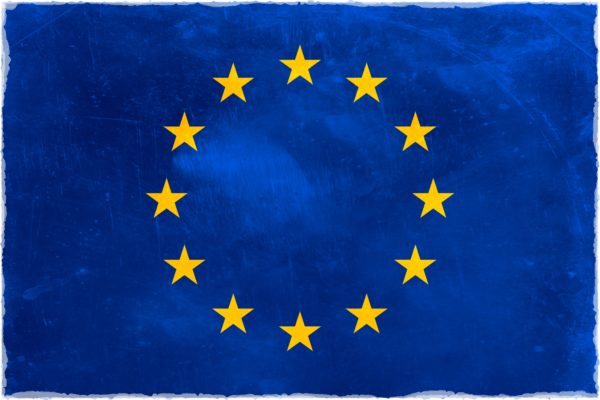The European Union maintains its attention on the emerging technologies market in the region. The EU expressed great interest in the blockchain tools for the financial sector. This week, it has published a statement in which it details an action plan for the development of a more competitive and innovative FinTech market.
The statement was published by the European Parliament, the Council of the European Union, the European Central Bank (ECB), the European Economic and Social Committee (EESC) and the European Committee of the Regions (CoR). The objective of the new initiative launched by the aforementioned entities is to convert Europe in a global center for financial technologies.
In this sense, the new FinTech action plan is trying to build the necessary economic and regulatory bridges in order to allow the European companies to make use and adopt the emerging tools among which the blockchain technology stands out, as well as the artificial intelligence (AI) and cloud storage.
Mariya Gabriel, the European Commissioner for Digital Economy and Society, said the blockchain tools could change the game for the financial services and other sectors as well. She pointed out the importance of the blockchain technology for the financial world and its promising future in the industry. Gabriel said: “Technologies like blockchain can be game changers for financial services and beyond. We need to build an enabling framework to let innovation flourish, while managing risks and protecting consumers.”
The statement talks about the blockchain ecosystem and its potential to generate structural changes in the financial sector. However, the governmental entities behind the statement admit that the volatility of the cryptocurrencies and their use in illegal operations are the points that are slowing down the adoption of these tools in the long-term.
The statement says: “Technological innovation has led to new types of financial assets such as crypto-assets. Such crypto-assets and the underlying blockchain technology hold promise for financial markets and infrastructures. Their use also presents risks, as has been witnessed by strong volatility of crypto-assets, fraud and operational weaknesses and vulnerabilities at crypto-asset exchanges. At EU level, action has already been taken to address some specific risks.”
These are the reasons why the new FinTech action plan will try to create markets that are more secure and offer easier access for startups. The European Union is thinking of applying a Pan-European label for the diverse technological platforms on the market, that would act as a license for the EU region.
Valdis Dombrovskis, the Vice-President for the Euro and Social Dialogue, Financial Stability, Financial Services and Capital Markets Union, pointed out that this initiative could provide a better access to the financial capital for all those emerging companies and thus improve the competitivity on the market. He said: “To compete globally, Europe’s innovative companies need access to capital, space to experiment and scale to grow. This is the premise for our FinTech Action Plan. An EU crowdfunding licence would help crowdfunding platforms scale up in Europe. It will help them match investors and companies from all over the EU, giving more opportunities for firms and entrepreneurs to pitch their ideas to a wider base of funders.”
The new FinTech action plan consists of 23 steps that are supposed to be discussed and followed. This group of initiatives are trying to support the adoption of new technologies and increase the cybersecurity.
One of the steps is the creation of a FinTech laboratory that would be administered by the aforementioned governmental entities of the EU. The lab would be dedicated exclusively to the exhaustive development of technological solutions and that is why it will be neutral and non-commercial.
In line with these projects, the Blockchain Observatory of the EU, launched in 2017, will keep on working to inform about the diverse challenges the cryptocurrency market would have to confront this year. Moreover, the objective of the Blockchain Observatory is to develop an integral strategy for the adoption of the blockchain technology in various economic sectors of the European Union.
Other initiatives proposed by the EU include the digitalization of all the information published by the companies on the EU territory. This information will be consulted internally with the goal of finding the best method for the storage of the digital data without restricting free access to it.
The commission in charge of this initiative also plans on organizing a group of workshops to foment ideas about cybersecurity on the European continent. Likewise, there will be an opportunity to generate limited environments for the development of startups and platforms, i.e. a regulatory frame which would allow the companies to conduct live experiments without restrictions.
On the other hand, the EU will also discuss new regulations for the crowdfunding project, since these collective financing activities are currently underdeveloped in the European Union in comparison to other regions in the world. This problematic is caused by the lack of common standards, which in turn raises the costs.
The regulatory authorities have the objective to facilitate the crowdfunding services without borders. Thus, if the European Parliament and the Council of the European Union adopt these measures, a unique set of relevant regulations for crowdfunding activities would be created and it would provide governance rules, protection of investors and risk management.
This set of projects linked with many other initiatives of the European Union for the development of the FinTech sector launched in 2017, presents a powerful set of activities related to the research and promotion of an innovative ecosystem on the EU territory. These initiatives could contribute a lot to the internal cryptocurrency market.




